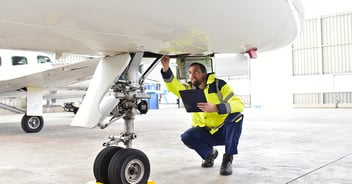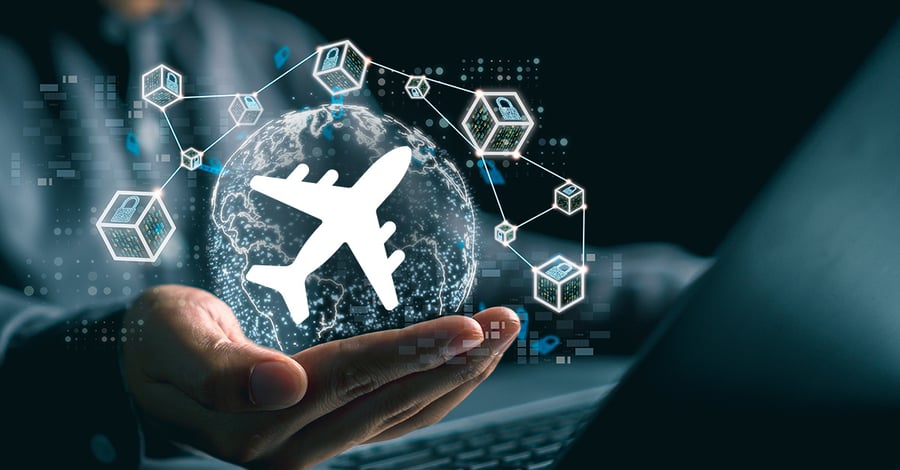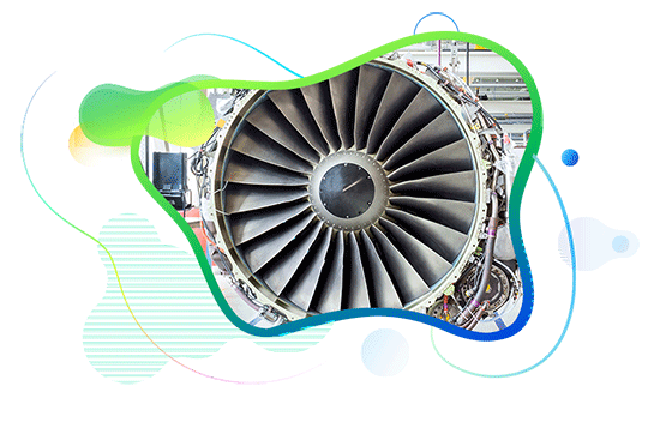
Unlocking Efficiency: The Role of Blockchain in MRO Aviation Software
Unlocking Efficiency: The Role of Blockchain in MRO Aviation Software
5:38
Published :

Transforming MRO with Blockchain: The aviation industry spends a staggering $50 billion annually on aircraft spare parts, yet much of the tracking and tracing remains manual. Blockchain technology addresses these inefficiencies by creating an immutable and transparent record of all transactions on a decentralized ledger. The results are promising—PwC estimates suggest blockchain implementation could reduce MRO costs by approximately 5% or $3.5 billion globally.
This technology effectively creates a digital "birth certificate" for each aircraft part, automatically updating with every maintenance activity. Smart contracts automate many manual processes, reducing errors and significantly improving operational efficiency.
Leading aviation companies have embraced this transformation. For instance, AFI KLM E&M and Parker Aerospace use a blockchain-based platform to track hundreds of thousands of Boeing 787 parts, demonstrating the technology's real-world application in the aviation industry. By tracking and tracing hundreds of thousands of 787 fleet parts, they have significantly reduced repair turnaround times and improved supply chain performance through better demand planning.
Successful implementation of blockchain technology requires technical integration and stakeholder buy-in. Smart contracts are the foundations of this revolutionary technology, but it requires a strategic approach:
You'll immediately notice the significant advantages of blockchain in security and compliance management through:
The technology also has a transformative impact on your documentation processes through centralized record-keeping, offering a single, secure ledger that records all maintenance activities, part histories, and regulatory compliance checks.
Industry implementation experience shows that organizations utilizing blockchain-enabled MRO aviation software typically save 5% to 10% annually. These savings stem from reduced administrative costs and improved operational efficiency.
While the tech landscape is evolving, a majority of technicians still rely on manual processes, with a report suggesting that about 90% of aircraft maintenance records are paper-based. Blockchain technology revolutionizes maintenance workflows through:
Blockchain technology is transforming MRO aviation operations. This technology works across aviation companies. It goes beyond digital record-keeping and creates a complete, secure, automated maintenance ecosystem. The numbers tell the story: 5-10% cost savings, less paperwork, and almost perfect tracking of aircraft parts.
The change from old systems to blockchain-enabled MRO software marks a game-changing advancement in aviation maintenance. AFI KLM E&M's implementation for Boeing 787 parts shows how this technology tackles the industry's biggest problems. Smart contracts and simplified processes have replaced many manual tasks. Better data security builds trust between partners and guarantees compliance.
Some estimates suggest that the blockchain-based system can handle over 2000 transactions per second. Every maintenance event—from minor repairs to major overhauls—is recorded and verified immediately, improving inventory control accuracy and decision-making processes.
The mix of cost savings, better efficiency, and improved security makes it vital for modern aircraft maintenance. Companies that accept new ideas today will be ready to handle tomorrow's aircraft maintenance challenges.

All Rights Reserved. © Copyright 2024. Ramco Systems.